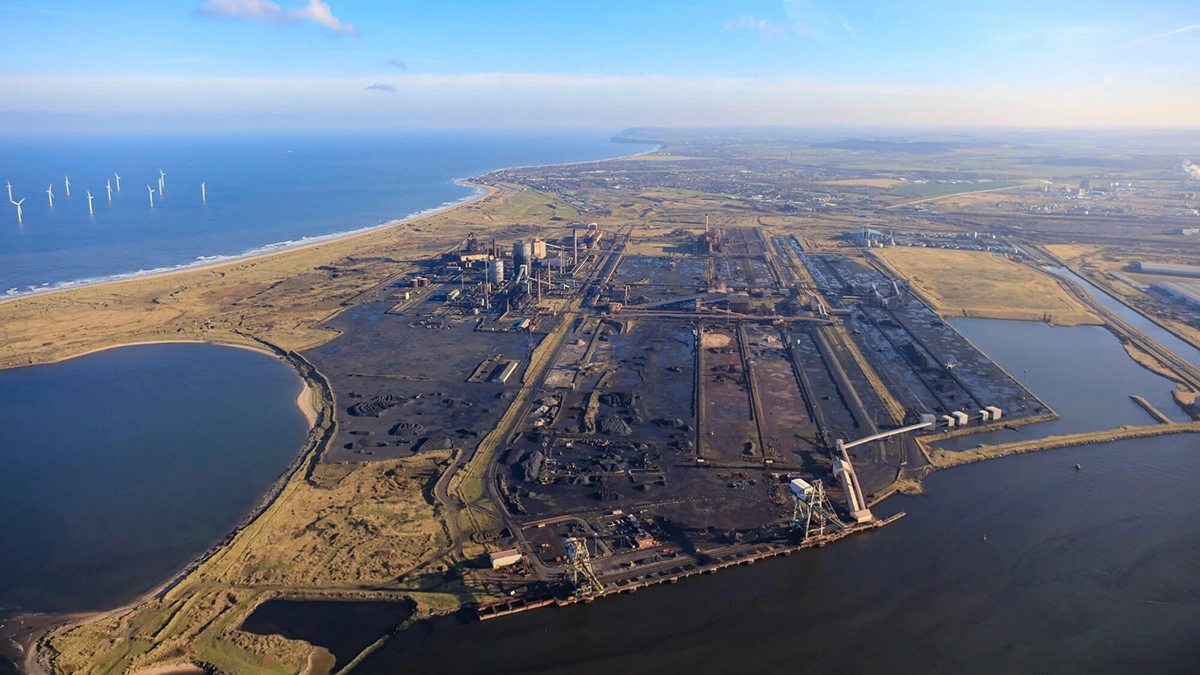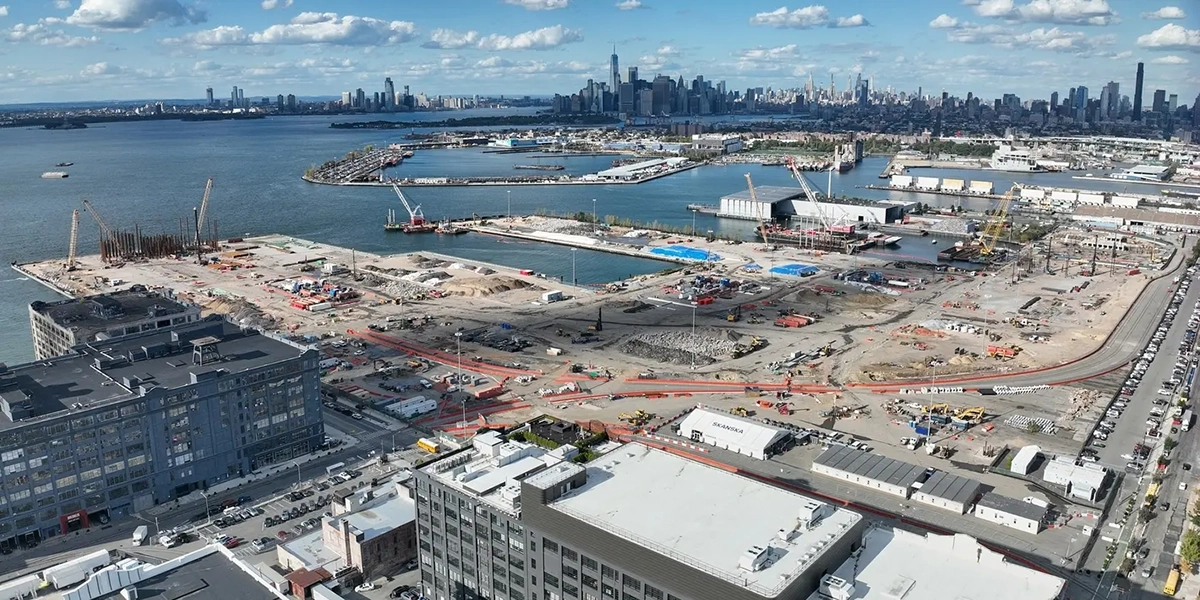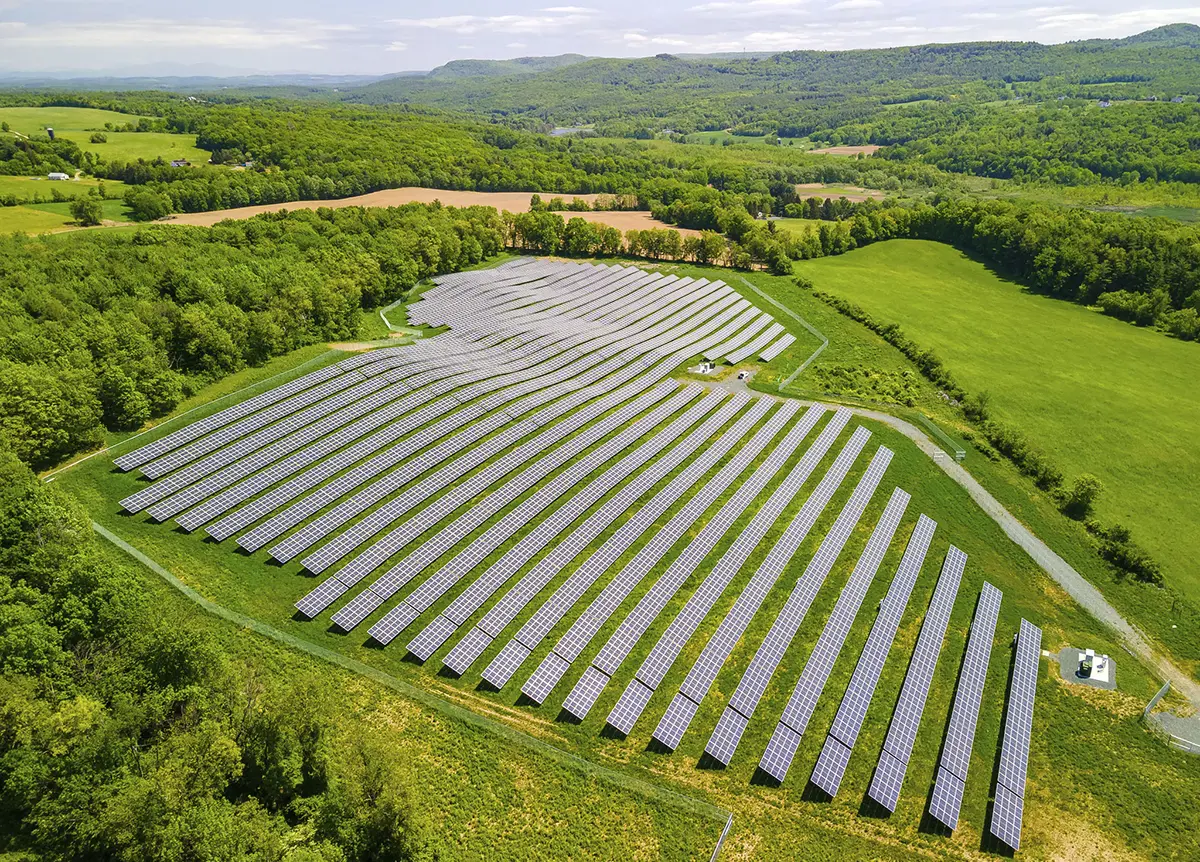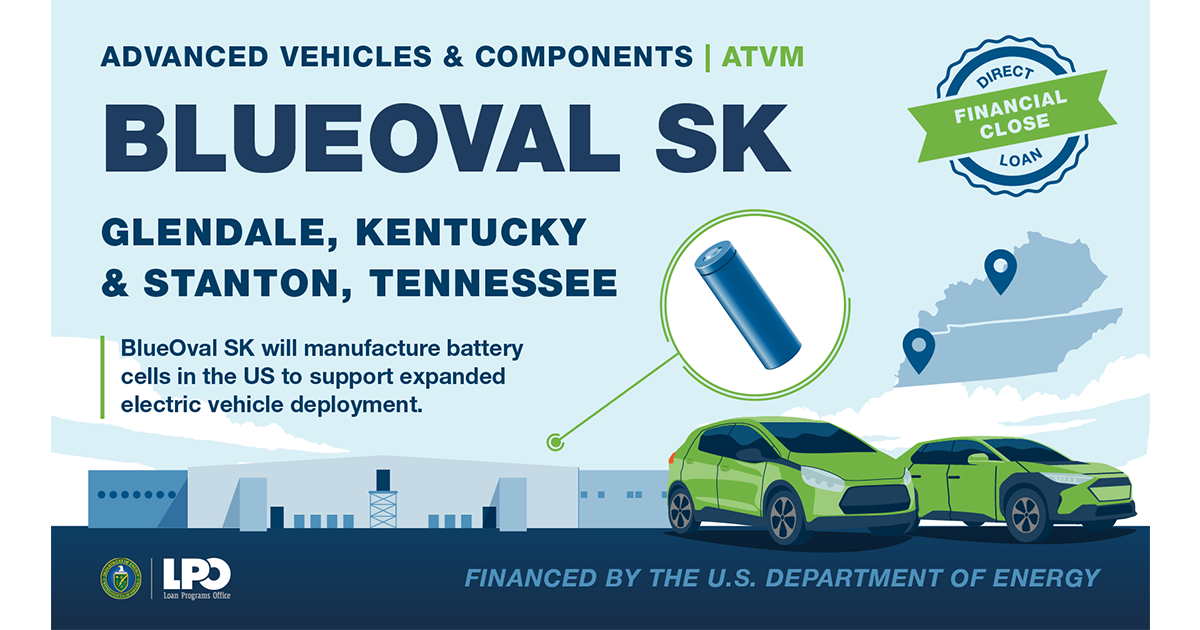
UK Carbon Capture Mega Projects Take Giant Leap Forward
Construction Expected In Mid-2025, First CO2 Storage By 2028

Equinor, bp, and TotalEnergies, through the Northern Endurance Partnership (NEP), and Equinor and bp through their Net Zero Teesside Power (NZT Power) joint venture, announced financial close after taking a final investment decision to execute three of the UK’s first carbon capture and storage (CCS) projects in Teesside, England, United Kingdom. Financial close follows the UK government’s recent announcement of a US$27.68 billion pledge for projects to capture and store carbon emissions from energy, industry, and hydrogen production.
NEP was formed in 2020 as a carbon dioxide (CO2) transportation and storage company to provide the onshore and offshore infrastructure needed to capture carbon from a range of emitters. Equinor and bp each hold a 45% stake in NEP, and TotalEnergies holds a 10% stake. bp holds a 75% stake in NZT Power and Equinor holds a 25% stake. bp serves as operator for NEP and NZT Power.
“It is a major milestone to have agreed Final Investment Decision and financial close on two of the UK’s first carbon capture, transport, and storage infrastructure projects,” said Irene Rummelhoff, executive vice president of marketing, midstream, and processing at Equinor. “This demonstrates how the industry, alongside the UK Government, have progressed a business model for new power supply and carbon capture, transport, and storage services to decarbonize the most carbon intensive region in the UK. We look forward to continued collaboration with our partners and the UK Government as we prepare to progress the projects, with an estimated operational date from 2028 onwards.”

(Image courtesy of Equinor)
Carbon Capture At Scale
The NEP infrastructure will initially serve three carbon capture projects in the Teesside region (NZT Power, H2Teesside, and Teesside Hydrogen CO2 Capture). Infrastructure includes an onshore CO2 gathering network, compression facilities, and a 90-mile (145 km) offshore pipeline connected to subsea injection facilities in the NEP saline aquifer located around 3281 ft. (1000m) below the seabed. Construction is expected to start in mid-2025, with first CO2 storage expected by 2028. The three Teesside projects are expected to transport and permanently store 4 MTPA of CO2, with room to expand to 23 MTPA by 2035 as the East Coast Cluster expands. The East Coast Cluster is comprised of two industrial regions in the UK, Teesside and Humber, which are both situated on the North Sea.
“We are very pleased to be a part of this significant moment in the development of the UK’s CCS industry,” said Arnaud Le Foll, senior vice president new business of carbon neutrality at TotalEnergies. “NEP is a frontrunner project, and we look forward to transporting and permanently storing CO2 from one of the UK’s largest industrial regions. Our stake in NEP contributes to TotalEnergies’ objective to develop significant CO2 storage capacities in the North Sea, where we can leverage our expertise in operations and geosciences.”
NZT Power, part of the East Coast Cluster, will be a new first-of-a-kind gas-fired power plant with carbon capture, which supports the decarbonization ambitions across the north-east of England’s industrial regions. The plant will have the capacity to generate up to 742 MW of decarbonized, flexible power, complementing a growing share of intermittent renewable power. This capacity is equivalent to the average electricity demand of around 1 million UK homes. It will have a capacity to capture up to 2 MTPA of CO2 for transport and secure storage by the NEP project.
“The UK is a key market for Equinor, and we have a history of delivering significant energy provision along its East Coast, transitioning from traditional oil and gas demand to include renewables and low carbon options such as CCS and hydrogen,” said Alex Grant, UK country manager at Equinor. “This is a major step for both Equinor and the UK, helping to decarbonize the country’s industrial heartlands and achieve its net zero ambitions whilst providing jobs and supply chain opportunities. We look forward to working with the Government to deliver further low carbon projects across the UK including in the Humber and in Scotland.”
NEP has also been granted government approval to progress development engineering for the Humber Carbon Capture Pipeline, the proposed onshore infrastructure project that would transport CO2 from future selected carbon capture projects in the Humber region.
“This is a landmark moment in the development of CCUS infrastructure and the UK’s ambition to reach net zero emissions by 2050,” said Chris Daykin, Director, Northern Endurance Partnership. “With joint backing from shareholders and the UK Government, Northern Endurance Partnership is entering its execution phase ahead of start-up expected in 2028”.

Advancing On Climate Targets
Supported by the UK government, NZT Power could create and support more than 3000 construction jobs and then generate 1000 jobs annually during operations, along with wider socio-economic benefits for Northeast England. The initiative is expected to attract private investment and help the UK to meet its climate goals and is aligned with the UK plan to reduce carbon emissions to net zero by 2050.
“This investment launches a new era for clean energy in Britain – boosting energy security, backing industries, and supporting thousands of highly skilled jobs in Teesside and the Northeast,” said Ed Miliband, UK secretary of state for energy security and net zero. “This is the Government’s mission to make the UK a clean energy superpower in action- replacing Britain’s energy insecurity with homegrown clean power that rebuilds the strength of our industrial heartlands.”
The projects will help participating companies grow closer to reaching their environmental, social, and governance objectives. TotalEnergies has a goal to achieve carbon neutrality by 2050, with an intermediate target to reduce net greenhouse gas emissions by 40% by 2030, compared with 2015 levels. Against a 2019 baseline, bp is targeting a 20% reduction in operational emissions by 2025, a 50% reduction by 2030, and net-zero across operations by 2050. Equinor said that the decarbonization projects will support its wider corporate ambitions, including a 50% reduction in operated emissions and 50% gross capital expenditure investment in low carbon and renewable technologies by 2030. In the low carbon solutions space, Equinor has a goal for 30 to 50 MTPA of CO2 transport and storage capacity by 2035.

(Image courtesy of NZT Power)
World’s First Gas-Fired Power Station With CCUS
Building work for both projects will be completed by nine engineering, procurement, and construction (EPC) contractors with a combined value of around US$5.1 billion. The EPC package includes work on onshore power, capture, and compression.
Technip Energies, the leader of a consortium with GE Vernova and construction partner Balfour Beatty with the support of technology partner Shell Catalysts & Technologies, received a Notice to Proceed by NZT Power to execute a major contract for the Net Zero Teesside Power. Contracts exceeding €1 billion of revenue are defined as major contracts by Technip Energies.

“We are excited to partner with GE Vernova and Balfour Beatty on the first-of-its kind Net Zero Teesside Power project,” said Arnaud Pieton, CEO of Technip Energies. “This award confirms Technip Energies’ leading position as a provider of state-of-the-art integrated CCUS solutions. I would like to thank Net Zero Teesside Power for their trust. This groundbreaking project represents a significant milestone in our collective efforts to advance carbon capture technology at scale and support the UK’s ambitious climate goals through low carbon power generation from gas combined with renewables. By leveraging our Canopy by T.EN solution powered by Shell’s CANSOLV CO2 Capture System, we aim to set a new standard for low-carbon power generation. This project not only underscores our commitment to innovation and sustainability but also highlights the critical role of collaboration in driving the energy transition forward.”

“Net Zero Teesside is a transformational project, underpinning the UK’s transition to cleaner and greener energy consumption and driving regional economic growth in Northeast England,” said Leo Quinn, CEO of Balfour Beatty Group. “Today’s announcement takes us one step closer to realizing this ambitious scheme, which will demonstrate collaboration at its finest and see us unite our unique strengths together with Technip Energies’ world-leading engineering and technology integration skills, Shell’s state-of-the-art CANSOLV CO2 Capture technology, and GE Vernova’s unparalleled power generation knowledge.”
Technip Energies, GE Vernova and Balfour Beatty, supported by Shell Catalysts & Technologies, together form the Carbon Capture Alliance (CCA). According to Technip Energies, CCA members are deeply committed to long-term investment in the UK and already possess a significant local footprint and supply chain. The consortium plans to deliver a combined cycle plant and associated carbon capture plant. Technip Energies will lead the integration of the carbon capture plant using its Canopy by T.EN solution, powered by Shell’s CANSOLV CO2 Capture System.
According to Technip Energies, Canopy solutions deliver CO2 recovery rates above 95% and feature excellent energy efficiency, low-solvent volatility, minimal emissions, are fully instrumented, and are completely automated for unmanned operations and plant performance monitoring. Shell Catalysts & Technologies developed its CO2 capture technology utilizing a regenerable amine with low parasitic energy consumption, fast kinetics, and extremely low volatility, according to the company. The technology allows for the capture of CO2 from flue gas.

(Image courtesy of Technip Energies)
“Being selected as the carbon capture technology provider for Net Zero Teesside Power reflects the proven capabilities of Shell’s CANSOLV CO2 technology in delivering substantial, reliable emissions reductions at scale,” said Elise H. Nowee, president of Shell Catalysts & Technologies. “This project also highlights the strength of our alliance with Technip Energies, which combines Shell Catalysts & Technologies’ expertise in technology licensing with Technip Energies’ excellence in project integration and delivery. Together, we are addressing the growing demand for scalable post-combustion carbon capture solutions. With the potential to capture up to 2 million tonnes of CO2 annually, Net Zero Teesside Power marks a critical milestone in the UK’s journey toward net zero.”
The plant will be powered by GE Vernova’s 9HA.02 gas turbine, a steam turbine, a generator, a heat recovery steam generator, an exhaust gas recirculation system, and benefit from GE Vernova’s maintenance service contract for 16 years.
“We believe CCUS technology can be crucial to help decarbonize the planet, and we welcome the commitment from the UK government to invest in its implementation as well as NZT Power’s trust in our technology,” said Maví Zingoni, CEO, Power at GE Vernova. “Flagship projects like Net Zero Teesside Power can give the industry foundations to grow. We look forward to powering the station with our advanced H-Class combined cycle technology, as well as proceeding with the first commercial use of our Exhaust Gas Recirculation system and integration technologies, which aim to support carbon abatement by boosting the efficiency and performance of carbon capture.”

(Image courtesy of Technip Energies)









